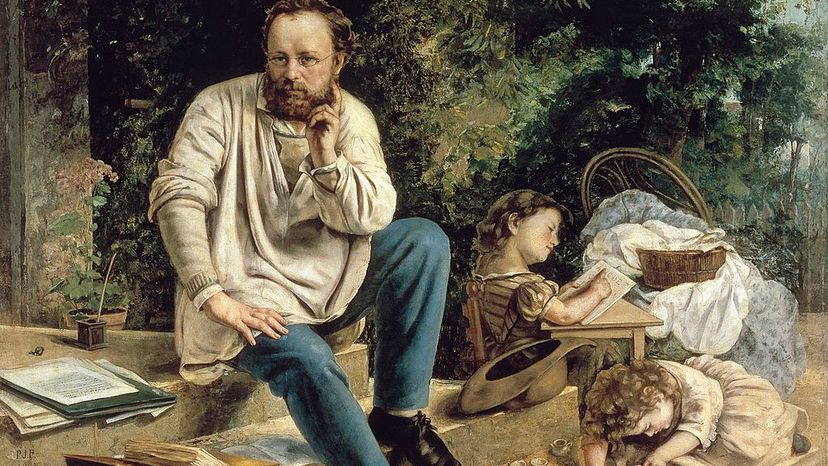Who Founded Anarchism?

In the mid-1800s, anarchism began to take shape as a distinct political philosophy, thanks to a visionary Frenchman named Pierre-Joseph Proudhon. The offspring of impoverished rural peasants, Proudhon labored as a cowherd and later as an apprentice printer. (While he was setting type, he taught himself Latin, Greek and Hebrew.) Eventually, in 1838, he won an academic scholarship to study in Paris, which gave him time to think about society and what it would take to fix the things that he thought were wrong with it [source: Woodcock].
The result, in 1840, was a book entitled "Qu'est-ce que la propriété? " or "What Is Property?" in which Proudhon became the first person to label himself an anarchist. He answered the question that he asked in the title in a sensational way: "Property is theft!" became an anarchist catchphrase. Proudhon wasn't against owning property, but rather ownership by someone who profits from other people's labor.
Advertisement
Among Proudhon's key contributions was the concept of replacing government with spontaneous order, in which organizations would emerge in a society without any leaders or central coordinating effort.
In 1840s Paris, Proudhon got to know two other important figures. One was Karl Marx, the German economist who was the father of communism. The other was Mikhail Bakunin, who became a follower of Proudhon and an important anarchist theorist in his own right. The offspring of a Russian noble family who rebelled against his privileged background, Bakunin held one key difference from his mentor. While Proudhon thought people could do away with government gradually, Bakunin didn't believe it would go without a fight. He felt violent revolution was necessary. His view helped shift anarchism in a different direction, and make it into a mass movement that inspired fear.
In some ways, Bakunin's views were very similar to those of Marx. In 1864, in fact, the two men were among the founders of the First International Working Men's Association, a group that sought to free workers in European countries from economic exploitation. But their personalities clashed, and their ideas eventually diverged. Bakunin — who fervently believed that the only way to fix things was to abolish nations altogether — split off with his fellow anarchists to form their own International in 1872. He also took issue with Marx's authoritarian ideas about the state [source: Buckley].